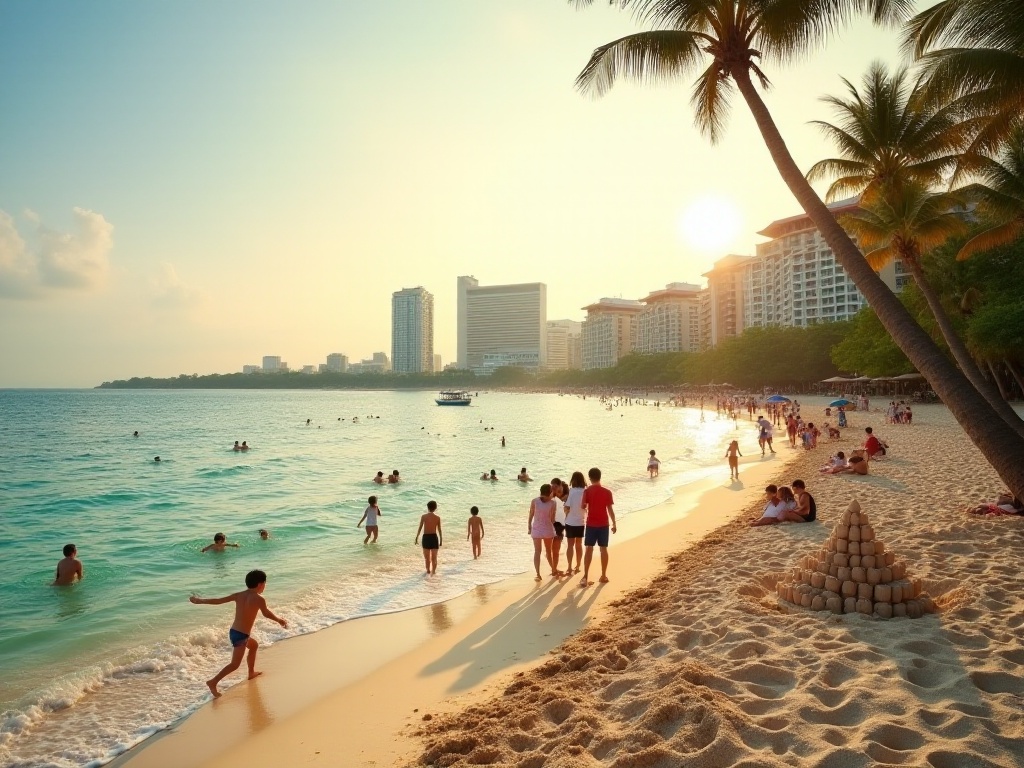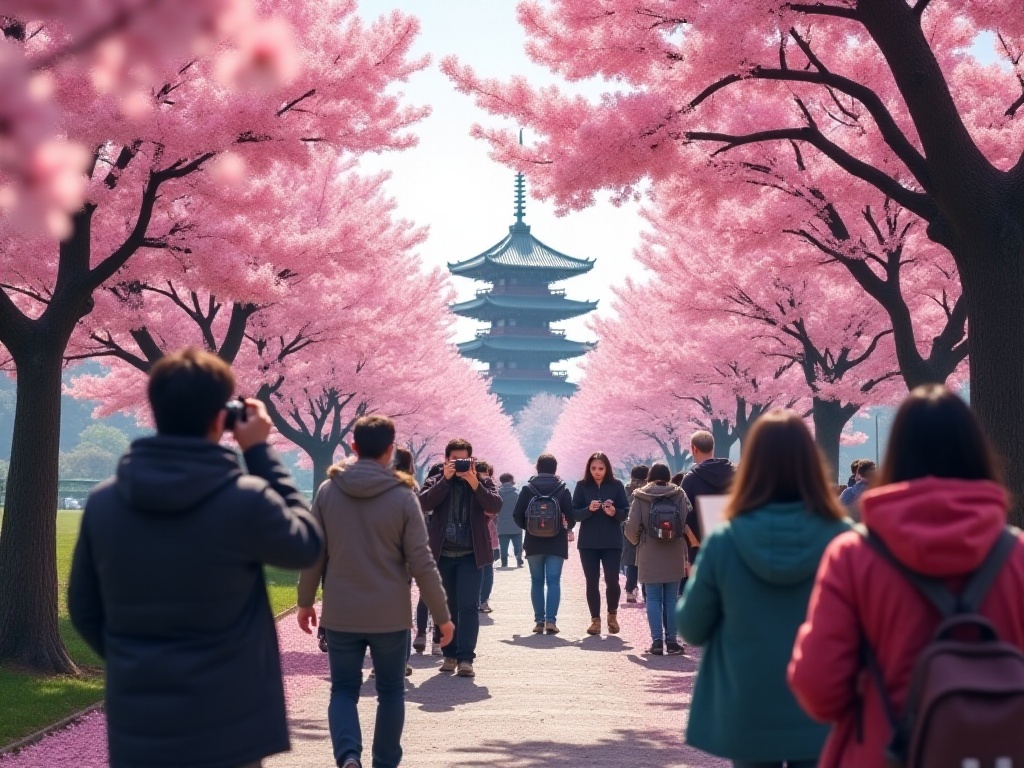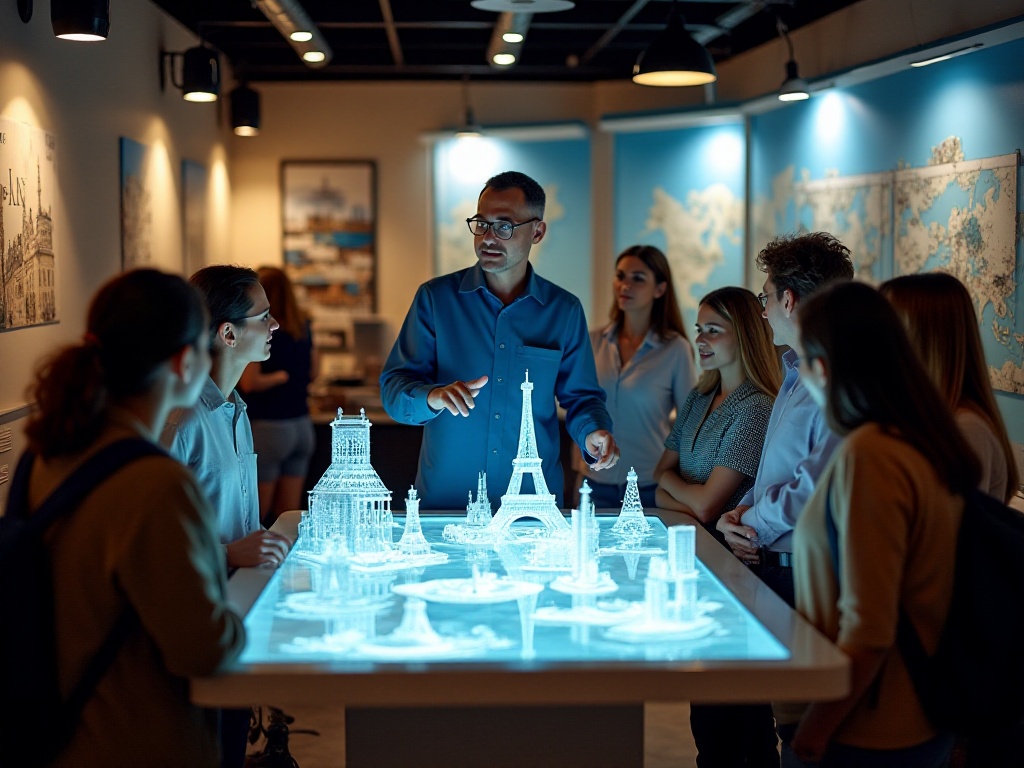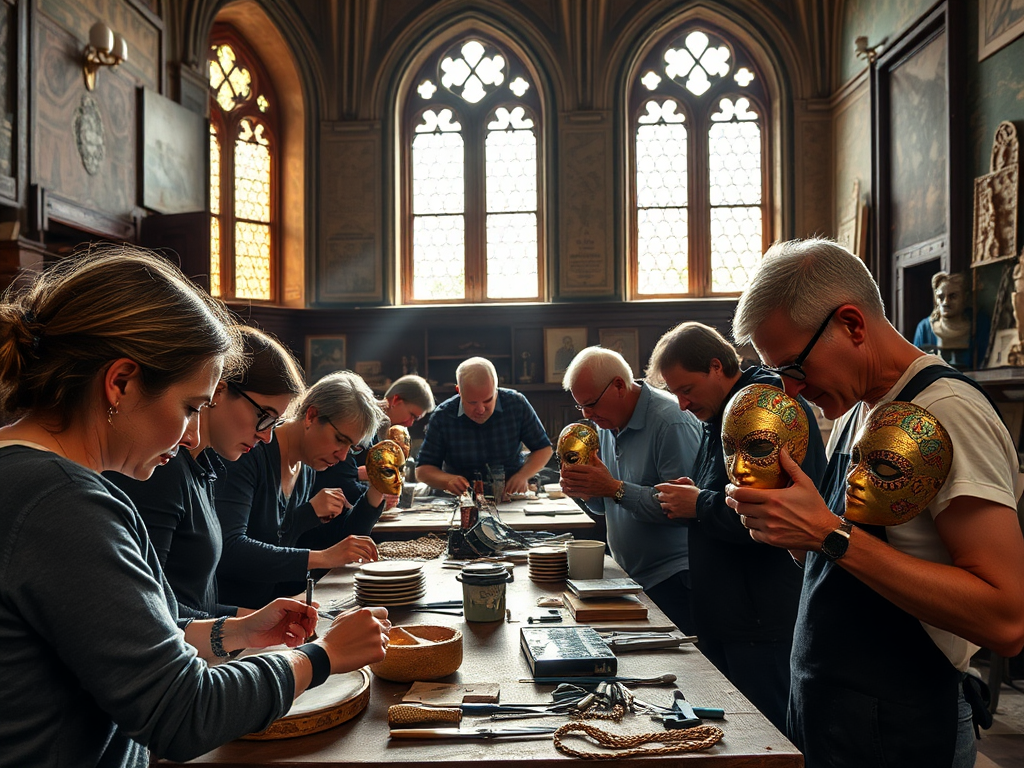Origin
Recently, I've been constantly seeing statements like "young people should never join group tours" on Xiaohongshu and Douyin, which honestly makes me speechless. As a post-95s traveler who just completed a 12-day in-depth Eastern European tour, I feel the need to share my personal experience to break people's stereotypes about group tours.
To be honest, I also signed up for the tour with skepticism before departure. After all, in my impression, weren't group tours just about tour buses + guides with flags + shopping store tours? But this experience truly overturned my understanding and made me realize that modern group tours are completely different now.
Misconceptions
When it comes to group tours, many young people's first reaction is "elderly tours," "shopping tours," or "tourist traps." However, group tour products have actually undergone tremendous changes, especially products targeting young groups, which can be said to have completely transformed.
Take my Eastern European in-depth tour as an example - throughout the 12 days, we only went to one shopping spot, and that was only added last minute because some aunties in the group wanted to buy Polish amber. During shopping time, the guide directly said: "Those who don't want to shop can sit in the cafe next door, we'll meet in half an hour." This kind of attitude makes people feel very comfortable.
The itinerary arrangement was also completely different from the old "get off to take photos, get on to sleep" mode. In Prague, we went to a traditional workshop and learned puppet making from a bearded Czech craftsman. Although the puppet I made ended up so ugly that I couldn't bear to look at it, this kind of in-depth experience was truly memorable.
In Budapest, the guide took us to a farm in the suburbs. The farm owners were an super adorable elderly Hungarian couple who taught us how to make traditional goulash soup and apple strudel. The old gentleman even brought out his treasured homemade wine and shared his family's winemaking history with us. How is this a traditional group tour? It's totally an immersive experience!

Data Analysis
Honestly, before this group tour, I always thought group tours were for elderly folks. But according to Ctrip's latest "2023 National Tourism Consumption Trends Report," post-90s and post-95s actually account for 38% of group tour participants! This data really surprised me.
The report also shows that among young groups, niche destinations and in-depth experience products are particularly popular, with booking volume growing over 50% year-on-year. What does this indicate? It shows that young people today are no longer blindly pursuing "spontaneous" independent travel when choosing travel methods, but are starting to rationally weigh various options.
Why has this change occurred? I think there are several reasons:
First is the time cost issue. Young people today don't have that much time to research itineraries! Take me for example - I'm already busy enough with work, regularly working overtime until 10 PM. If you ask me to spend another 20+ hours researching an itinerary, I'll really be sick. And while researching travel guides seems simple, it actually takes a lot of energy. Just comparing various flight prices, researching accommodation locations, and planning transportation routes is enough to give you a headache.
Second is the upgrade of tourism products. Travel agencies now understand young people's needs well and have launched many special themed tours. For example, there are photography tours where guides are professional photographers who take you to various unique spots for great shots. There are also food tours with itineraries completely centered around Michelin restaurants and local specialty shops. There are even music festival tours specifically for attending various international music festivals.
When it comes to value for money, this point really can't be criticized. My 12-day Eastern European tour cost 9,800 yuan, including round-trip flights, four-star hotel accommodations, three meals, admission tickets, and guide service. Just the flights and accommodations would cost at least 10,000 yuan if booked independently. Plus, many attractions were pre-booked by the guide, so we didn't have to queue - this kind of time saving is priceless.
Then there's the security issue. Although young people today are very independent, having a guide with you in unfamiliar foreign countries always gives you more security. Especially in places like Eastern Europe where English isn't very widespread, having a guide who speaks the local language is really important. A girl in our group almost had her bag stolen in Prague, but the guide noticed and stopped it in time.

Selection Advice
So here comes the question: faced with so many group tour products on the market, how do you choose one that suits you? As an "experienced driver" who has personally experienced it, let me share my selection strategy:
First, look at the itinerary arrangement. A good group tour must combine both depth and breadth. It can't just be about taking photos at attractions; there should also be local special experiences. For example, during our time in Prague, we visited Prague Castle (a must-see attraction) in the morning, had free time in the afternoon, and attended a Czech black light theater performance in the evening. This kind of pace is very comfortable - you don't miss important sites while having plenty of time to experience local life.
Accommodation is also a very important reference standard. Many tours targeting young people now choose boutique hotels or characteristic homestays in city centers. Don't think this is just a gimmick - the location of accommodation really greatly affects travel experience. We stayed at a boutique hotel by the Danube in Budapest - we could walk directly to the riverside to see night views, and there were many bars and restaurants nearby. If we had stayed in the suburbs, we would only be able to watch TV in the hotel at night.
The guide's level is also key. Many travel agencies now indicate guides' age, experience, and specialties - it's recommended to pay attention to this information when choosing a tour. A good guide needs to be not only professional but also think like young people. Our guide often recommended Instagram-worthy photo spots and shared interesting local urban legends.
Also look at the specific itinerary arrangements. Is the time spent in each city reasonable? Are the driving times between attractions too long? Is there reserved free time? These all need careful consideration. A good itinerary arrangement should be compact but not rushed, ensuring you can visit all the main attractions without feeling too tired.

Real Experience
Actions speak louder than words - let me share the specific experience of this Eastern European tour.
In Krakow, we originally planned to visit the Wieliczka Salt Mine, but it was super crowded on the weekend. Seeing that the queue would take two to three hours, the guide made an impromptu decision to take us to a local flea market. This market wasn't a tourist attraction at all, just a pure local weekend market. I bought a vintage Polish military cap there for only 50 yuan equivalent - it would sell for at least 300 in vintage shops back home. Most amazingly, we ate handmade Polish dumplings from an old grandmother at the market - the taste was truly incredible! These spontaneous experiences became the most unforgettable memories of the entire journey.
In Budapest, there was a super interesting couple from Guangzhou in our group. The husband was a photography equipment collector who brought three cameras, and the wife was a food blogger who knew a lot about local cuisine. During free time in the evenings, we often went exploring restaurants together. Because of them, I got many beautiful photos and ate at many great restaurants I would never have found on my own. We still keep in touch now, often sharing travel photos and food recommendations in our group chat.
Speaking of accommodation, the hotel we stayed at in Prague really amazed me. It was a boutique hotel converted from an ancient castle, with Baroque-era murals on the room ceilings. Most magical was that the hotel's basement was a medieval wine cellar with wine tasting events in the evening. I remember one night, several of us young people sat in the wine cellar, drinking Czech beer while listening to the owner tell ancient Prague legends - that atmosphere was really incredible!
Another particularly interesting experience was in Vienna. The guide knew that several of us girls really liked music, so he helped us book standing tickets for the Vienna State Opera. Standing tickets are super cheap, only 4 euros, but you can watch the complete opera performance. Although standing for three hours was a bit tiring, being able to hear a live performance at the world's most famous opera house was truly an unforgettable experience.

Future Outlook
After experiencing this Eastern European in-depth tour, I feel group tours are developing towards more personalized and in-depth experiences. Especially in some niche destinations, group tours indeed have many advantages over independent travel.
For example, the language barrier issue. In many parts of Eastern Europe, English isn't as widespread as in Western Europe. Having a guide who speaks the local language really saves a lot of trouble. Plus, guides are very knowledgeable about local history and culture and can tell us many interesting stories - this is hard to experience with independent travel.
Then there are some special experience items. Like the Hungarian farm we visited - you simply couldn't book that independently. These local special experience items often require established cooperation channels to arrange.
Many travel agencies are also trying new service models now. For example, semi-independent travel only includes accommodation and transportation, with other activities self-arranged. Or themed tours completely designed around specific themes. These new attempts are breaking the traditional group tour model.
I think future group tours will focus more on personalized experiences. There might be more specialty products like "photographer-led tours," "foodie-led tours," or "historian-led tours." Through the guidance of professionals, tourists can more deeply understand and experience destination characteristics.
Overall, I don't think we can simply say "young people aren't suitable for group tours." The key is finding the right group tour product for you. As long as you choose the right tour, group travel can be young, fashionable, and interesting.
By the way, if you're planning to join a group tour, it's recommended to look more at travel agencies' reputation reviews, especially real tourist feedback. Many travel apps now have detailed itinerary reviews - through this information you can better understand a tour's real situation.
Finally, I want to say that there's no right or wrong way to travel, only suitable or unsuitable. Whether group tour or independent travel, the most important thing is enjoying every moment of the journey and experiencing different cultures and unique experiences. After all, isn't that the meaning of travel?







